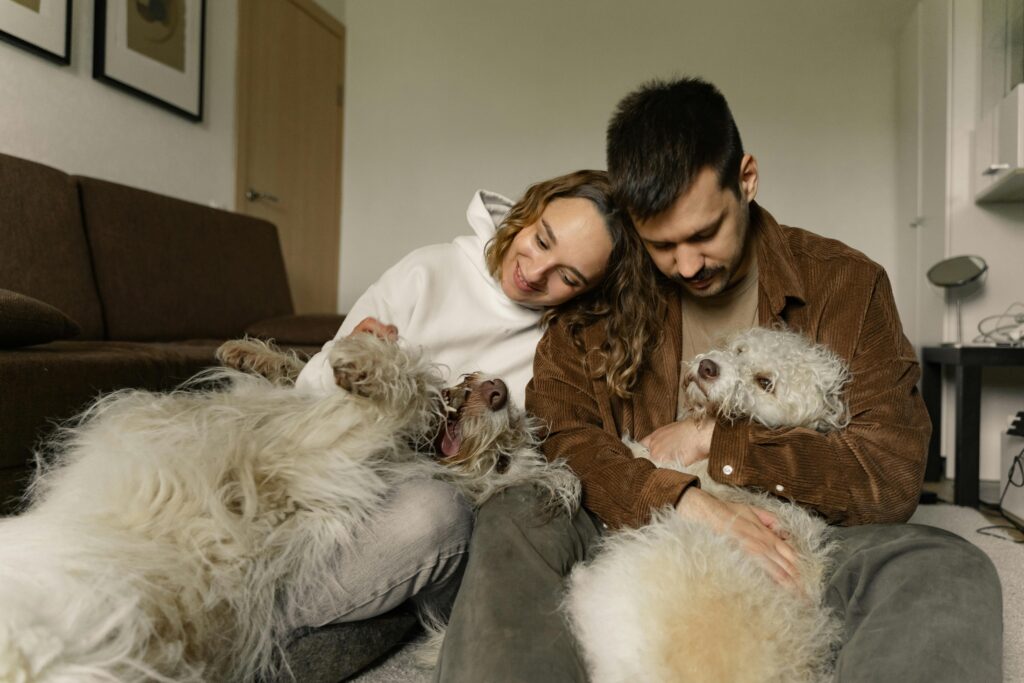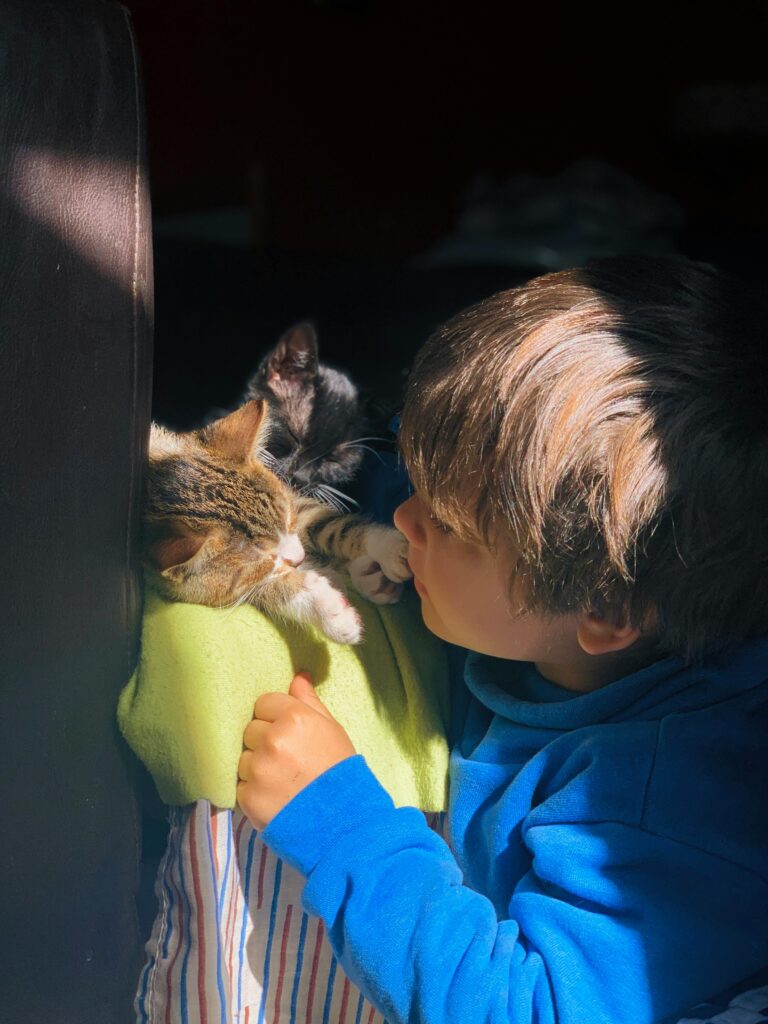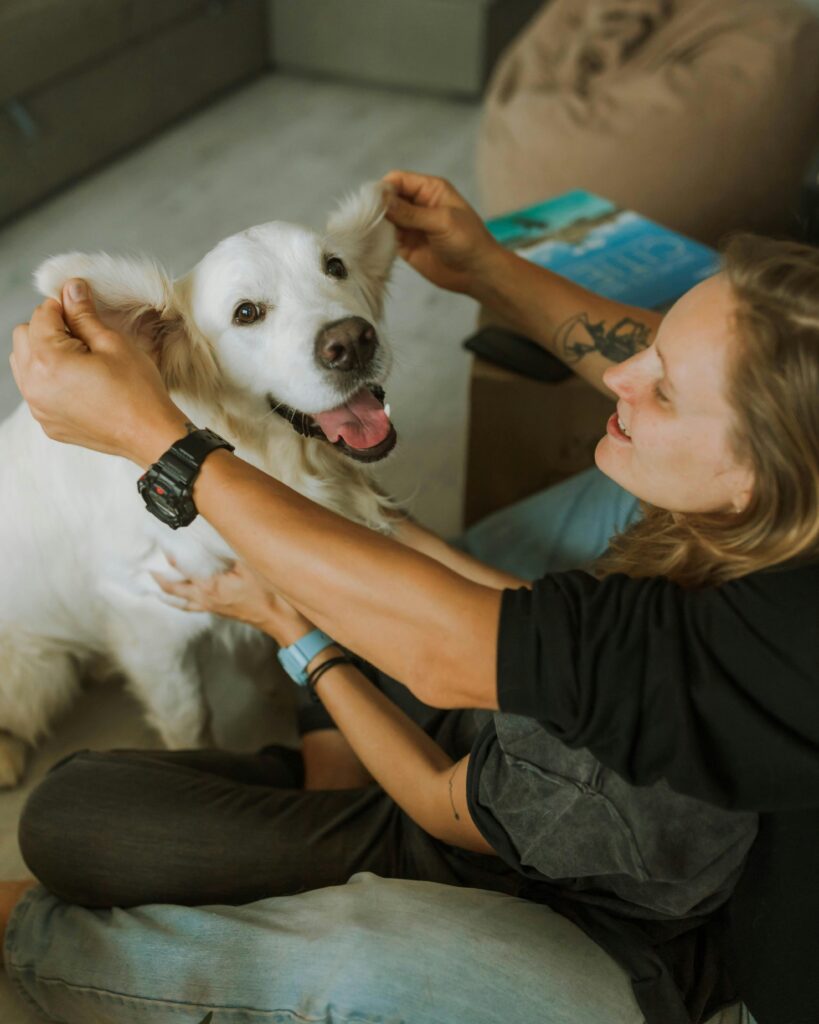For many of us, pets are far more than just animals—they’re cherished members of the family. From celebrating their birthdays to ensuring they have the best food and medical care, we often go to great lengths to give our pets the same love and attention we would give a human family member. But why do we form such deep bonds with our pets? The answer lies in psychology, biology, and the unique emotional connections that animals foster in us. Let’s explore the psychological reasons why we treat pets like family.
Pets Trigger Our Caregiving Instincts

One of the primary reasons we treat pets like family is that they tap into our innate caregiving instincts. Much like how we care for children, pets depend on us for food, shelter, and safety, triggering the same nurturing responses we have toward human family members. When a dog looks up at us with big, soulful eyes, it’s hard not to feel a sense of responsibility and protection.
This caregiving instinct is often referred to as the “baby schema effect,” where certain physical traits—like big eyes, round faces, or small stature—trigger an instinctive caregiving response in humans. Many pets, particularly dogs and cats, have these features, which makes us feel a sense of affection and the urge to care for them.
Pets Provide Unconditional Love and Emotional Support
Pets are masters of offering unconditional love, which fosters strong emotional connections. Dogs, for example, greet us with excitement every time we walk through the door, regardless of how our day has been. Cats may be more independent, but they often show affection in their own quiet ways, such as curling up next to us when we’re feeling down. This unwavering love creates a bond that mirrors familial relationships.
Psychologically, the companionship of a pet can alleviate feelings of loneliness and provide emotional stability. For people dealing with stress, anxiety, or depression, pets often act as emotional anchors. The sense of companionship they provide fills a deeply ingrained human need for connection, making it natural to treat them like family.
Pets Meet Our Need for Connection

Humans are social creatures, and the need for connection runs deep in our psychological makeup. Pets can meet this need, especially in times of social isolation or when people are far from family. Research has shown that interacting with pets can trigger the release of oxytocin, the “love hormone,” which promotes bonding and a sense of well-being.
When we cuddle with a cat or play fetch with a dog, the release of oxytocin makes us feel closer to them, fostering a bond similar to what we experience with family members. Pets also lower stress hormones like cortisol, contributing to their role as emotional support systems, which reinforces why we treat them with the same affection and care as we do for our loved ones.
Anthropomorphism: Assigning Human Qualities to Pets
Anthropomorphism—the tendency to attribute human emotions, intentions, and characteristics to animals—plays a big role in how we relate to our pets. We talk to them, give them human names, and interpret their behavior through a human lens. When our dog seems to “smile” or our cat appears to be “curious,” we feel more connected because we perceive their behavior as similar to our own.
This tendency to anthropomorphize helps deepen the emotional bond, as we feel like our pets understand us on a deeper level. It’s part of the reason we include pets in family activities like holiday photos, special dinners, or trips. Treating pets like family allows us to connect with them in ways that feel familiar and human.
Pets Fulfill Roles in Our Lives
Many pets serve specific roles within the household, whether it’s as companions, protectors, or even working animals. Dogs, for instance, have historically been bred for specific tasks like herding, guarding, or hunting, and today, many pets continue to offer services such as therapy or emotional support. Cats help control pests and provide comfort in quiet, serene ways.
These roles cement pets as integral members of the household, much like a parent, sibling, or child. When a pet contributes to the emotional or functional well-being of the family, it’s only natural to treat them as an important part of that family structure.
Pets Offer a Non-Judgmental Presence

Pets don’t judge us for our mistakes, bad days, or flaws. They provide a non-judgmental presence that’s often hard to find in human relationships. This judgment-free love creates a safe space where we can be ourselves without fear of rejection or criticism, strengthening our bond with them.
This aspect of the human-pet relationship can be particularly comforting for people going through difficult times or who may struggle with self-esteem. Pets simply love us for who we are, which is a key reason we view them as loyal family members.
In conclusion, the deep emotional connections we form with our pets are rooted in our need for companionship, love, and emotional support. Pets fill roles in our lives that mirror familial relationships, and their unconditional love and non-judgmental nature make them true members of the family. Whether it’s through caregiving, companionship, or the roles they play in our daily lives, pets occupy a special place in our hearts, and it’s no wonder we treat them just like family.


